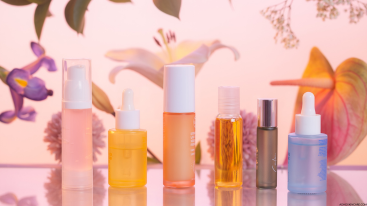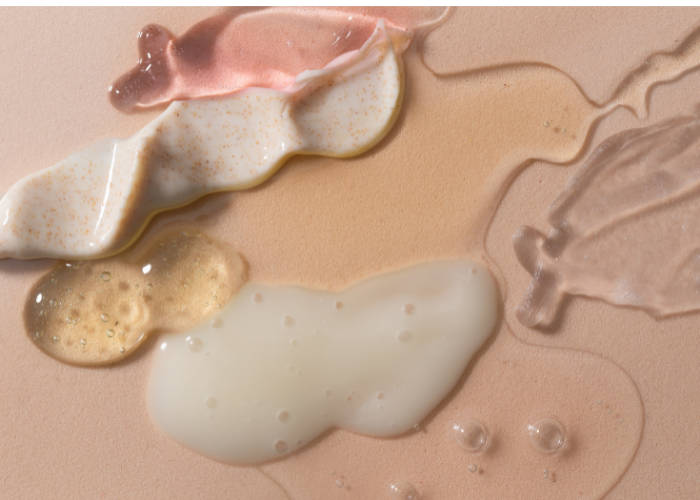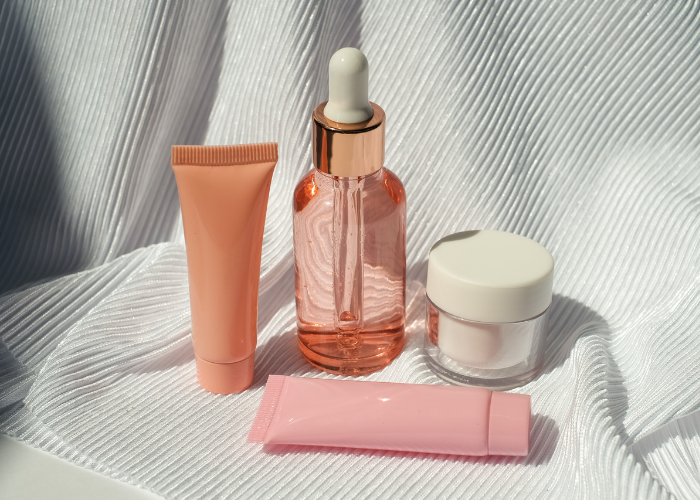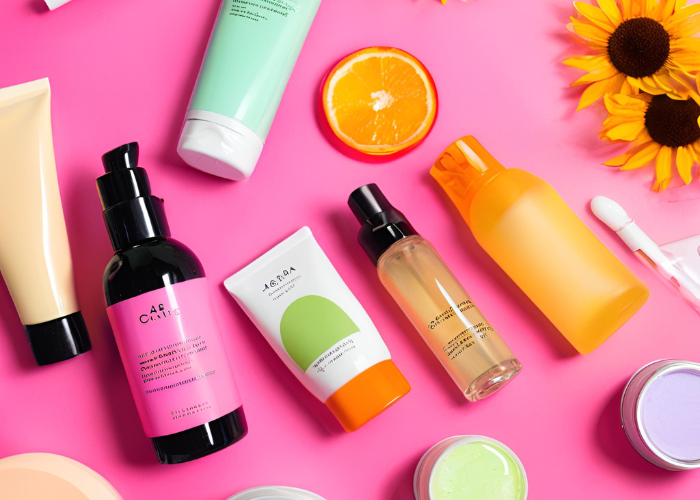
If you have ADHD, you’ve probably noticed that managing your skin can feel like an uphill battle. The good news? You’re not alone.
A 2023 study published in SAGE Journals found that people with ADHD are more likely to experience skin issues like:
- Acne
- Eczema
- Excessive skin picking
But why?
ADHD isn’t a one-size-fits-all diagnosis; it’s a spectrum. That means not everyone with ADHD experiences the same struggles. This also makes it hard for non-experts to recognize the connection between ADHD and skin issues.
Let’s break down the biggest ways ADHD affects your skin and, more importantly, how to work around it.
ADHD Medications Like Ritalin Can Affect Your Skin
ADHD medications, especially stimulant drugs like Ritalin and other methylphenidate-based treatments, can play a role in skin changes.
Several studies have linked these medications to both mild and serious skin reactions, depending on the form, dosage, and delivery method:
- A 2015 FDA safety review published in the American Journal of Nursing found that the Daytrana patch (a transdermal form of methylphenidate) could cause chemical leukoderma, a rare, permanent loss of skin pigment.
The review also cited rashes, itching, and exfoliative dermatitis in patients using oral medications like Concerta and Aptensio XR, which are extended-release versions of methylphenidate. - A 2007 multisite clinical study published in the Journal of Clinical Psychiatry looked specifically at the Daytrana patch and found that about 50% of children developed mild skin redness at the application site. One child (0.3%) developed a true allergic sensitization to methylphenidate.
- A 2021 published case report on a 12-year-old patient taking oral Ritalin showed that after a dose increase, the child developed acneiform facial eruptions and scalp dermatitis. These side effects improved after the dose was reduced, suggesting a direct link between dosage changes and skin flare-ups.
Other reported skin-related side effects of medication containing methylphenidate include:
- Dryness
- Restlessness or itching
- Color changes in the fingers or toes (especially with Aptensio XR)
- Hives or allergic rashes, though rare
How to Deal With Skin Changes Caused by Ritalin and Other ADHD Medications
If you’re noticing new skin issues while taking ADHD meds, especially after a dose change or starting a new medication, it’s worth bringing up with your doctor or dermatologist. Your skin might be reacting to more than just stress or habits; your medication could be part of the picture too.
While you wait to speak with your provider, here are some tips for caring for dry-sensitive skin:
- Use a gentle, fragrance-free cleanser – No foaming, no stripping. Think creamy, not bubbly.
- Layer hydration – Try a lightweight hydrating toner or essence before your moisturizer.
- Moisturize while damp – Lock in water right after cleansing to keep skin plump.
- Skip actives – Put retinol, acids, and exfoliants on pause until your skin calms down.
- Avoid hot showers – Heat strips your skin barrier fast. Lukewarm is your friend.
- Keep it simple – Fewer products = less irritation. Think recovery mode, not 10-step routine.
If things get worse (burning, flaking, or swelling), stop all products and reach out to your provider ASAP.
For a more in-depth guide, check out our simple step-by-step skincare routine for dry skin. It’s ADHD-friendly.
Sensory Issues Could Make Skincare Feel Uncomfortable

Sensory sensitivity is a hallmark of ADHD, but it varies widely. A 2018 study published in the Comprehensive Psychiatry Journal found that ADHD brains react to stimuli in two key ways:
What Does This Mean?
Hypo-Responsiveness (Low Sensitivity)
- You don’t notice skin issues until they become severe.
- Skincare feels irrelevant because your brain doesn’t register discomfort easily.
- Skin picking can become a way to seek sensory input.
Hyper-Responsiveness (High Sensitivity)
- Strong reactions to textures, scents, or product sensations.
- Certain skincare products feel overwhelming or downright unbearable.
- You avoid skincare because it’s too much stimulation at once.
How to Deal with Sensory Skincare Struggles
Stick to fragrance-free, hypoallergenic products to minimize irritation.
Test new products on a small patch before committing.
Create a sensory-friendly skincare kit with textures and scents that feel good.
Attention Difficulties = Skincare Inconsistency

ADHD brains struggle to stay on track, not because we don’t care, but because our brains literally work differently.
A 2014 study in The American Psychological Journal found that ADHD adults have trouble turning off the medial prefrontal cortex, the brain area responsible for overthinking and distraction.
Many people with ADHD experience two extremes when it comes to routines:
Routine Challenges
- Forgetting your routine entirely (out of sight, out of mind).
- Struggling to stay consistent even when you want to.
- Skincare feeling like a chore rather than a habit.
Hyperfocus Periods
- Getting obsessed with your routine for a while.
- Finding dopamine-fueled satisfaction in skincare.
- Sticking to it perfectly… until you suddenly stop.
Attention difficulties also make it difficult to:
- Remember routines (or even why they matter).
- Stick to long-term skincare goals.
- Follow through with detailed skincare plans.
- Avoid impulsive product purchases.
How to Stay on Track
- Make skincare visible leave products where you’ll see them.
- Set alarms or use a habit-tracking app.
- Attach skincare to an existing habit (e.g., brushing your teeth).
Impulsive Skincare Buys = Inconsistent Routine

A 2007 study published in the Journal of the International Neuropsychological Society explored impulsivity in ADHD and identified three types:
- Attentional Impulsivity → Jumping between routines/products.
- Non-Planning Impulsivity → Buying skincare without researching.
- Motor Impulsivity → Applying products incorrectly or skipping steps.
How This Messes with Your Skin
- You forget to follow through with skincare steps.
- You randomly switch products before they have time to work.
- You buy unnecessary products on impulse.
How to Manage Impulsivity in Skincare
- Simplify your routine stick to a few trusted products.
- Use a shopping list to avoid impulse purchases.
- Give new products time to work (at least 4-6 weeks!).
Executive Function Challenges = Skincare Feels Like a Chore

ADHD affects planning, organization, and self-discipline. A study by Professor James M. Swanson (University of Ohio) published in the Journal of Clinical Psychiatry outlined how ADHD impacts executive function, leading to:
Forgetting daily skincare steps.
Difficulty following multi-step routines.
Procrastinating on skincare.
Getting overwhelmed by too many choices.
How to Overcome Executive Dysfunction in Skincare
- Write down a simple skincare routine and check it off.
- Use visual aids like charts or sticky notes.
- Set small, achievable goals (e.g., “I’ll wash my face tonight“).
Sleep Struggles = Bad Skin Days

Sleep and ADHD do not mix well. A 2021 study published in BMJ Mental Health Journal found that ADHD brains have higher rates of insomnia and sleep disturbances.
How Poor Sleep Wrecks Your Skin
- Increases inflammation → Worsens acne, eczema, and dull skin.
- Slows skin repair → Skin doesn’t heal as quickly overnight.
- Disrupts hydration levels → Skin becomes dry and irritated.
How to Improve Sleep & Skin
- Create a nighttime routine (wind down before bed).
- Try calming skincare (e.g., chamomile, niacinamide, or squalane).
- Prioritize sleep-friendly habits (reduce screen time before bed).
TLDR
ADHD-Friendly Skincare IS Possible. Understanding how ADHD impacts your skin is the first step to finding what works for you. Small, consistent changes lead to real results — without the overwhelm.
Quick Takeaways:
- Skin changes after using ADHD medication? Talk to your doctor
- Struggle with sensory overload? Use hypoallergenic products.
- Forget your routine? Keep skincare visible & use reminders.
- Impulse-shop too much? Stick to a skincare shopping list.
- Can’t stay consistent? Simplify your routine & pair it with an existing habit.
- Bad sleep = bad skin. Improve your nighttime routine for healthier skin.
Frequently Asked Questions

Here are the questions we get asked the most:
Q: Can ADHD medication affect my skin?
A: Yes. Stimulant medications like Ritalin, Concerta, and Daytrana have been linked to skin side effects including rashes, acne, dryness, and in rare cases, permanent pigment loss (especially with the Daytrana patch). Reactions may get worse after a dose increase or if you have sensitive skin. If something changes, don’t ignore it — talk to your doctor.
Q: How does ADHD affect my skincare routine?
A: ADHD makes consistency a struggle; forgetfulness, distraction, and impulsivity all play a role. You might:
- Forget your skincare routine exists.
- Get bored and stop halfway through.
- Impulse-buy new products before finishing the old ones.
- Skip steps without realizing the long-term effects.
- Have strong reactions to products due to sensory issues.
The key? Make skincare work for your brain, not against it. (More on that below!)
Q: Why is my skin so sensitive even though I have ADHD?
A: ADHD affects sensory processing, meaning you might:
- Overreact to certain textures, scents, or sensations (hello, burning serums!).
- Not notice skin irritation until it’s severe.
- Avoid skincare altogether because it feels overwhelming.
Tip: Stick to gentle, fragrance-free products and introduce new ones slowly.
Q: Does lack of sleep affect my skin?
A: YES! Poor sleep messes with your skin by:
- Increasing breakouts & oil production.
- Making your skin look dull & tired.
- Slowing down healing & repair.
Since ADHD and sleep struggles go hand-in-hand, focusing on better rest = better skin. Try wind-down routines, blue light blockers, and calming skincare before bed.
Q: How can I manage my skincare routine better with ADHD?
A: ADHD-friendly skincare hacks that actually work:
- Keep it visible – Store your skincare where you see it daily.
- Use reminders – Alarms, sticky notes, or habit-tracking apps.
- Attach it to a habit – Do skincare after brushing your teeth.
- Simplify it – Stick to cleanser, moisturizer, and SPF before adding extras.
Q: Are there specific skincare tips for people with ADHD?
A: Yes! Make your routine as low-effort as possible:
- Choose easy-to-use products – No fussy routines.
- Use multitasking products – (e.g., a moisturizer with useful actives before sunscreen).
- Get an accountability buddy – A friend, partner, or our Newsletter!
